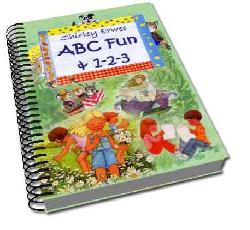| Back to Back Issues Page |
 |
|
Doubting Your Choices? August 15, 2016 |
Doubting Your Choices?If you haven’t yet, you are bound to one day find yourself in a social situation with a conversation that goes something like this: “So if you aren’t a qualified teacher, how are you going to know what to teach your children?” “My child is so cute, her class has learned all the actions for Incy-Wincy Spider.” “Did you see how confident Johnny was in the end of year concert?” “You should have seen the amazing pottery pencil holder my child brought home the other day. Yes, they do pottery at their preschool.” You look around and your hostess seems to have all her children’s best artwork, each created in a different medium, posted on the fridge and the neat notice board above her computer desk. Her uncluttered home is tastefully decorated, spotlessly clean and her own needlework creations are also displayed here and there – scatter cushions and a matching table runner, a wall-hanging, and an intricate cross-stitch picture. Suddenly you feel so inadequate and wonder if you have made the right decision to keep your children at home with you instead of sending them to school and having the mornings to yourself. You are not only seeing and hearing about all the good things their children have done and achieved at preschool, but also what the mother has accomplished with the free time she has, while her children are being schooled elsewhere. Can you really teach your child? You don’t do all those fancy art creations. Your child doesn’t even know the words of Incy-wincy Spider, let alone the actions. Your child has never been in a concert and doesn’t even know what pottery is. Your home is cluttered with toys and stuff the kids have been busy with, there are finger marks on the walls and cabinet doors and your sewing machine is collecting dust in a corner of the dining room. You are questioning your choice and doubting your decision. Let me remind you: Only YOU have your children’s long term best interests at heart. The fabulous preschool or grade one teacher that the kids love so much won’t be going with them through the rest of the grades. You are building strong relationships between you and your child and between them as siblings. You are modelling priceless lessons, training their character, equipping them with skills and exposing them to the real adult world and those things can’t ever be posted on a fridge door. You are giving your children one-on-one attention and building their self-esteems, while other kids are striving for significance and attention in the school jungle, where its often survival of the fittest. “There is no evidence that a child needs to go to nursery school. It’s my hunch that twenty minutes a day playing with his mother does a preschooler as much good as three hours in a classroom.” ~ Psychologist Glen Nimnicht Your children have relative freedom and autonomy to choose their own activities. Kids in preschool are usually required to comply with the programme and the teacher’s agenda. They learn to be passive role-players in a system that requires conformity. Your children can more easily learn to take initiative and can direct their own learning. And there are still many years ahead where, if you want to, or if your children want to, you can explore all the mediums of art you choose, you can learn songs and rhymes, you can take pottery lessons or speech and drama classes. You can do creative needlework, alone or with your children when they are older. You still CAN do all the things you imagine your children might be missing out on, but without sacrificing the priceless benefits of having your children at home with you, especially in the early years. Don’t let comments from people who have made different choices than you undermine your confidence. You are the expert on your own children. You love them unconditionally and that qualifies you to be the best person to educate them. YOU CAN DO IT! “Personal success for the child, including his later achievement and adjustment in school, depends to a large degree upon a stable, predictable, consistent early environment. A child needs a secure base from which to explore. He becomes self-reliant as he realizes that he can rely on others.” "Parents who love their children, who understand their developmental needs, realize that neither research nor common sense dictates sending children away from home in the early years." ~ Raymond and Dorothy Moore, Better Late Than Early Developmental ActivitiesGross Motor Skills Skipping: Tie a rope to a pole or chair leg and gently swing it back and forth so that you child can hop over it. Fine Motor Skills Give your child a long piece of ribbon or even a skipping rope. Ask her to hold it by one end and twist her hand in circles to make spirals with the ribbon. Then ask her to shake it back and forth so that it ‘slithers’ like a snake. Let her flick the ribbon into the air and catch the ‘tail’ of the snake with her other hand. This may take some practice. Encourage her to create other patterns with the ribbon or rope.
Auditory Perception Teach your child some action rhymes and encourage her to do the actions too. Language and Thinking Skills Find a text-free storybook at the library or alternatively use a story book that your child does not know. Look at the pictures together and ask your child to tell you the story. Choose a book that lends itself to this kind of activity. Some titles: Good Night, Gorilla
Using coloured beads, construction blocks or coloured pegs on a pegboard or any other similar toys, ask your child to arrange repetitive patterns. Begin with simple combinations and let her enjoy success! Mathematical skills Demonstrate the concept of subtraction to your child. Begin with five items. Ask your child to tell you how many remain if you remove one. Now remove another item and repeat until none are left. Use counting rhymes like Ten Green Bottles or Five Little Speckled Frogs (lyrics are on my site) to reinforce this activity in a fun auditory fashion! Faith Building Learn a Bible verse by heart and talk about what it means with your children: "Create in me a pure heart O God and renew a steadfast spirit within me." Psalm 51:10
Regards Designed for ages 3-6 years, ABC Fun & 1-2-3 is a story-based preschool curriculum with printable alphabet worksheets, weekly lesson plans, easy kids crafts, nursery rhymes and more - all to make learning the ABC fun! |
| Back to Back Issues Page |
